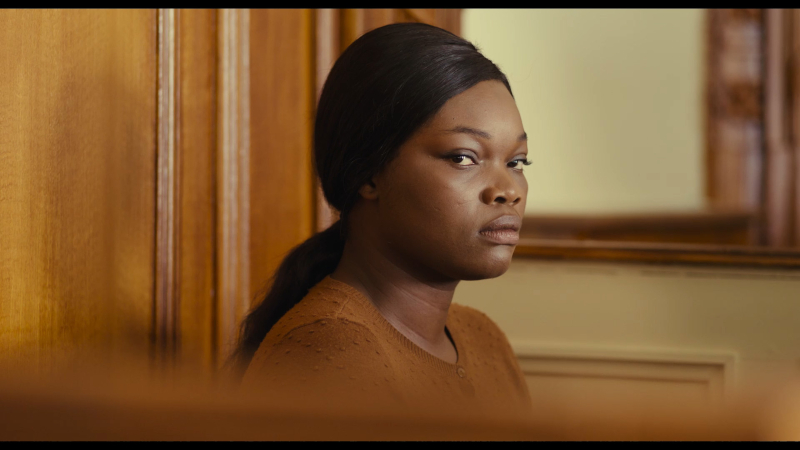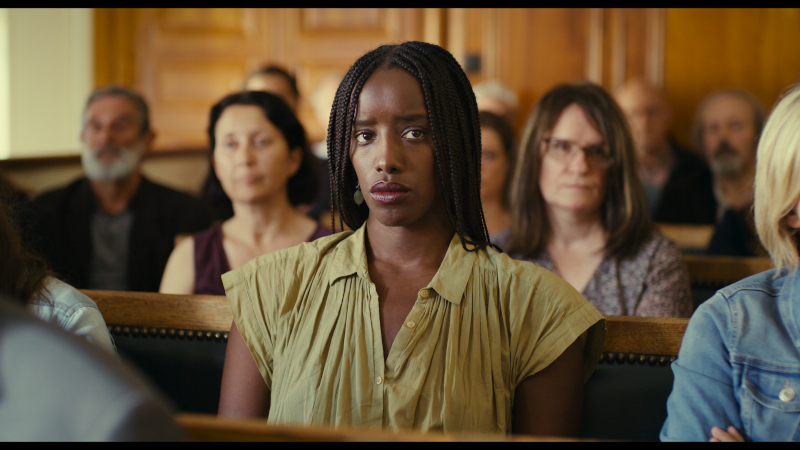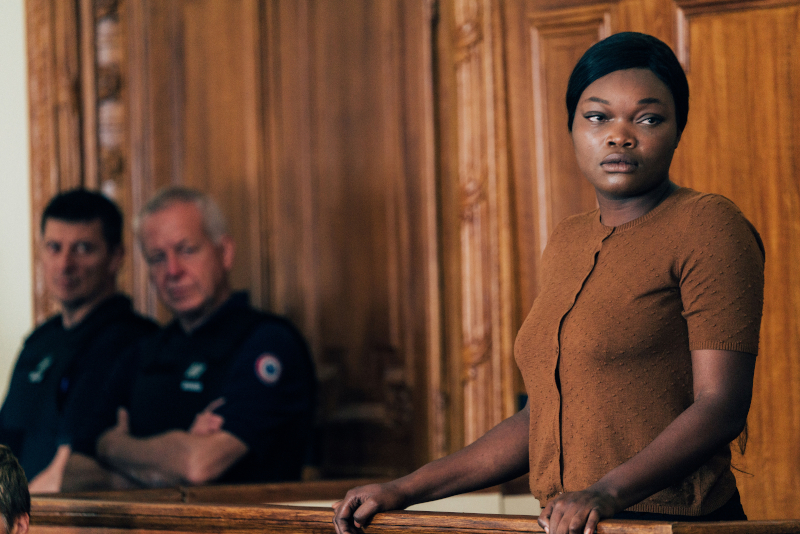Director – Alice Diop – 2022 – France – Cert. 12a – 122m
*****
Researching a proposed book, an academic visits Saint Omer to attend the trial of a woman who murdered her own 15-month old baby – out in UK cinemas on Friday, February 3rd
Holding her baby, a woman walks into the sea.
University lecturer Rama (Kayije Kagame) plans to write a book based around a court case at the Saint Omer criminal court. Her head is full of memories of her mother, with whom her relationship could, at times, be tense. She takes the train to the town, which is in the Northernmost part of France, near the border with Belgium. The Senegalese defendant Laurence Coly (Guslagie Malanda) – the woman seen at the start of the film – is accused of the murder of her 15-month old child Elise.
In her defence, Coly, who has confessed to the murders, claims to have been cursed, that she herself therefore isn’t the party responsible for the killing. Her courtroom testimony unpacks her relationship with her separated parents: she lived with her mother but never really got on with her since they had little in common, while her father paid for her school tuition as he wanted her to study law. She came to France to do so at University, but got into a huge telephone row with her father when she told him she wanted to switch to philosophy, as a result of which he stopped supporting her financially and she cut all ties with him.

Coly subsequently got involved and moved in with a sculptor named Dumontet (he appears briefly on the stand played by Xavier Maly) knowing him to be married but separated from his wife. She talks about sorcery, although the judge is sceptical since the mediums the defendant mentions claim not to know her. As she discusses getting pregnant by this man, contradictions emerge in what she says. “I acted as if I wasn’t pregnant,” she says, adding, “I didn’t try to conceal it.“ She is later accused of hiding her child from the world, of anonymising it.
While all this is going on – and it’s electrifying stuff – Rama, who it turns out is herself some four months pregnant, finds herself talking to the defendant’s mother Odile Diatta (Salimata Kamate) who is also attending the trial, later lunching with her. There are further flashbacks of Rama’s childhood, throwing more light on her relationship with her own mother. And it comes out that Rama’s proposed book related to the Greek myth of Medea.

After grabbing you in its opening moments, this then takes a little while to get going and arguably gets bogged down a little in its portrayal of the academic. Once it settles into the trial, though, it’s as compelling a courtroom drama as I can remember seeing. This is partly down to Alice Diop’s direction. A former maker of documentaries, here making her first narrative feature, Diop seems just as interested in conveying all the minutiae of French courtroom procedure as she is in telling her story, and the former has the effect of anchoring the viewer to make the unfolding court case all the more effective in dramatic terms.
In addition, she has clearly given a lot of thought to the casting of the roles of courtroom professionals so that, while Malanda’s Coly is clearly the centre of attention, the judge (Valérie Dréville), the defence lawyer (Aurélia Petit from The Science Of Sleep, Michel Gondry, 2006; Personal Shopper, Olivier Assayas, 2016) and the prosecutor (Robert Cantarella) all prove highly watchable when they appear on screen.
That said, Guslagie Malanda’s extraordinary performance as the troubled and often contradictory defendant is the film’s strongest asset and the reason to see it.
Saint Omer is out in cinemas in the UK on Friday, February 3rd.
Trailer:
